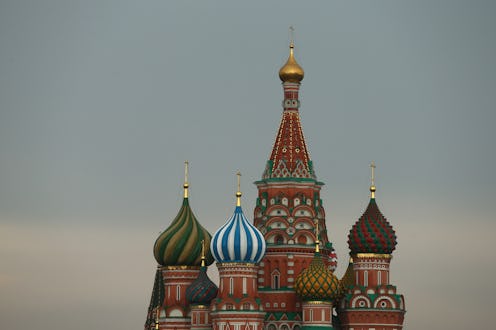News
Did Russia Mastermind The DDoS Attack?
A string of distributed denial of service (DDoS) attacks on a company that oversees critical internet infrastructure brought down a slew of heavily-trafficked websites Friday, sparking many questions regarding potential culprits. While no one has yet to come forward to claim responsibility for Friday's DDoS attack, multiple theories about who might be behind the cyber attack have surfaced. One theory being floated around the internet claims Russia is behind the latest DDoS attack but is that a credible argument?
Internet users across the United States reported troubles accessing sites like Amazon, Airbnb, Etsy, Twitter, Netflix, Spotify, SoundCloud, and Reddit among others throughout the day as Dyn, a company that provides domain name servers (DNS) to those sites, weathered three consecutive DDoS attacks. What made Friday's attacks especially unique is the fact hackers reportedly used "tens of millions" of internet-connected devices, like CCTV cameras, DVRS, and routers to hit Dyn's servers with enough fake requests to overwhelm them.
It's still not clear who's responsible for the DDoS attacks launched on Dyn on Friday, although both the Department of Homeland Security and the Federal Bureau of Investigation have said they're investigating the incident, according to Reuters. Yet a lack of information has rarely stopped people from finding someone to blame, and Friday's cyber attack was no exception.
While multiple theories surfaced regarding who could be behind Friday's widespread internet disruption — including Wikileaks' claim it was its supporters — one interesting theory being tossed around implied Russia was playing a role.
There are two theories currently attempting to tie Russia to the DDoS attack on Dyn. The first suggests Russia struck out at Dyn in response to U.S. officials threatening to engineer a future cyber attack as retaliation for Russia's alleged (but not proven) interference in the election. Democratic nominee Hillary Clinton has claimed the 17 agencies that make up the U.S. intelligence community believe Russia is behind Wikileaks' release of Clinton campaign emails.
The second theory, which seems to have picked up steam among supporters of Republican nominee Donald Trump, suggests the attack is a "false flag" operation carried out by the U.S. government in an effort to paint Russia as the bad guy.
Yet, Friday's cyber attack isn't the first DDoS attack to be attributed to Russia or Russian hackers. A 26-year-old Russian man was arrested and sentenced for carrying out a DDoS attack in 2012 against a financial corporation, according to Group IBM. Still, as of now, there's no evidence to tie Russia to Friday's attack on Dyn.
